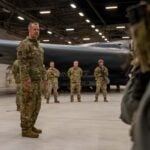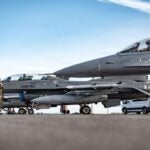
Sen. Jerry Moran (R-Kan.) on May 15 questioned the impact of Boeing's [BA] proposed buy of Wichita-based Spirit Aerosystems [SPR], which supplies commercial and military programs, including the Airbus A350 airliner, Boeing's troubled 737 Max and 787 Dreamliner, the Northrop Grumman [NOC] B-21 Raider future stealth bomber for the U.S. Air Force, Lockheed Martin's [LMT] Sikorsky CH-53K helicopter for the U.S. Marine Corps, and the Bell [TXT] V-280 Valor tiltrotor for the U.S. Army's Future Long Range Assault Aircraft. "In…














